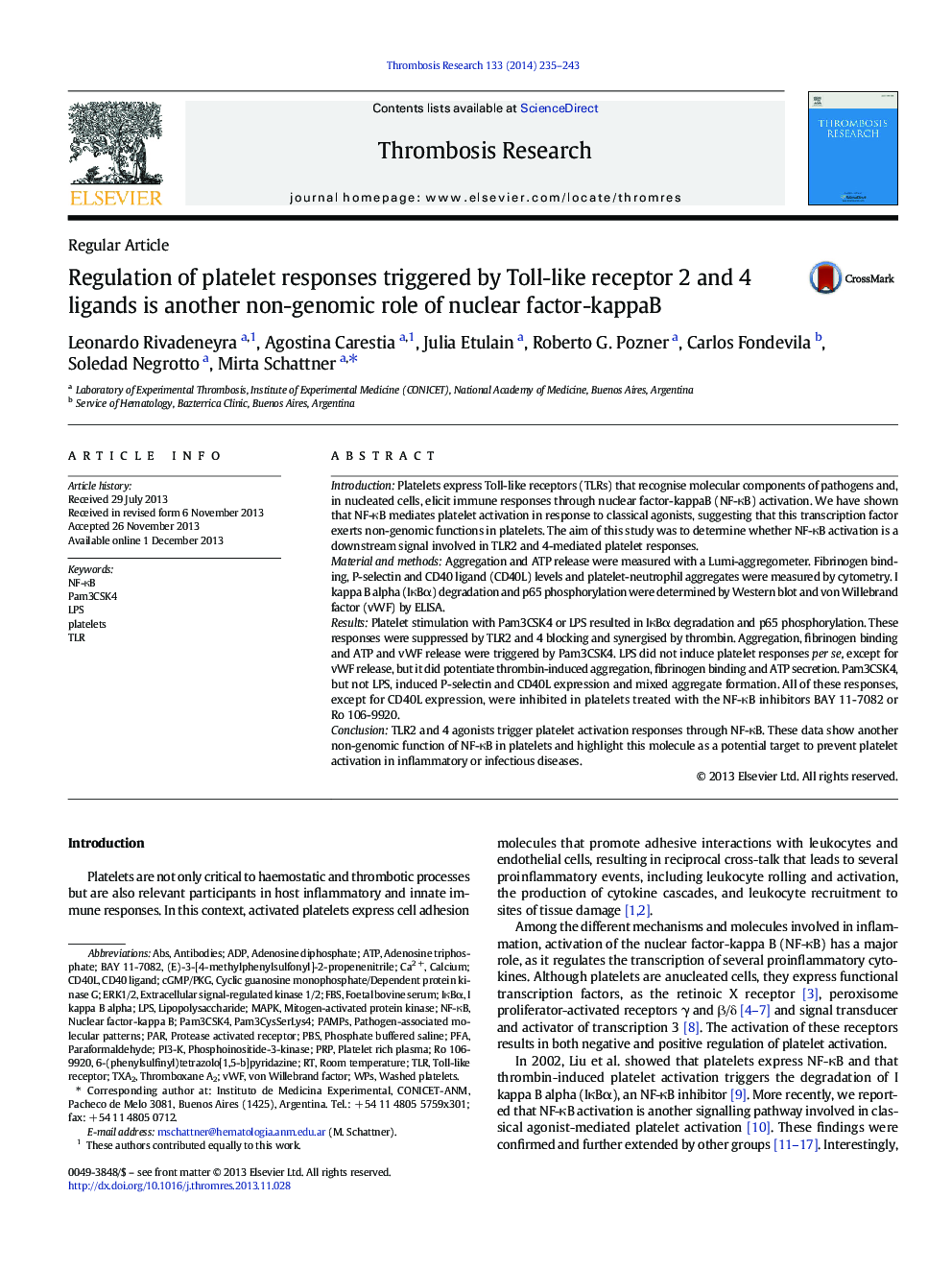| Article ID | Journal | Published Year | Pages | File Type |
|---|---|---|---|---|
| 6001506 | Thrombosis Research | 2014 | 9 Pages |
IntroductionPlatelets express Toll-like receptors (TLRs) that recognise molecular components of pathogens and, in nucleated cells, elicit immune responses through nuclear factor-kappaB (NF-κB) activation. We have shown that NF-κB mediates platelet activation in response to classical agonists, suggesting that this transcription factor exerts non-genomic functions in platelets. The aim of this study was to determine whether NF-κB activation is a downstream signal involved in TLR2 and 4-mediated platelet responses.Material and methodsAggregation and ATP release were measured with a Lumi-aggregometer. Fibrinogen binding, P-selectin and CD40 ligand (CD40L) levels and platelet-neutrophil aggregates were measured by cytometry. I kappa B alpha (IκBα) degradation and p65 phosphorylation were determined by Western blot and von Willebrand factor (vWF) by ELISA.ResultsPlatelet stimulation with Pam3CSK4 or LPS resulted in IκBα degradation and p65 phosphorylation. These responses were suppressed by TLR2 and 4 blocking and synergised by thrombin. Aggregation, fibrinogen binding and ATP and vWF release were triggered by Pam3CSK4. LPS did not induce platelet responses per se, except for vWF release, but it did potentiate thrombin-induced aggregation, fibrinogen binding and ATP secretion. Pam3CSK4, but not LPS, induced P-selectin and CD40L expression and mixed aggregate formation. All of these responses, except for CD40L expression, were inhibited in platelets treated with the NF-κB inhibitors BAY 11-7082 or Ro 106-9920.ConclusionTLR2 and 4 agonists trigger platelet activation responses through NF-κB. These data show another non-genomic function of NF-κB in platelets and highlight this molecule as a potential target to prevent platelet activation in inflammatory or infectious diseases.
